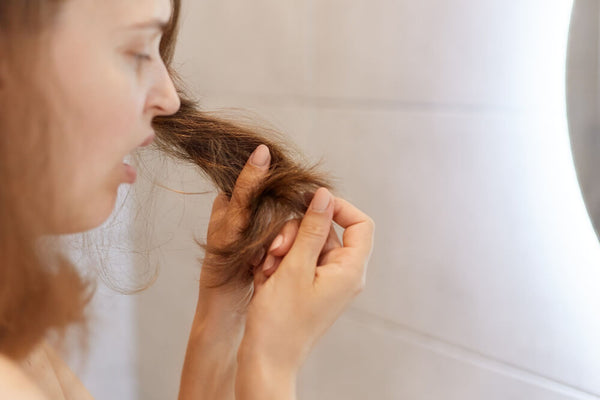That moment you find it—a smooth, coin-sized patch on your scalp where hair should be. Your heart sinks. The first thought is usually panic: "Is this going to keep happening? Will I lose more?"
I want you to take a deep breath. I know this feels terrifying, but you are not powerless. Alopecia Areata is a journey of ups and downs, but damage control is absolutely possible. The goal is to calm the internal fire so the attack on your hair follicles stops. Let's talk about how we do that.
What's Really Happening When Alopecia Areata Strikes?
Let's break it down without the scary jargon. Alopecia Areata is an autoimmune condition. This means your immune system gets confused. It mistakenly identifies your hair follicles as a threat and then attacks them, like friendly fire. This inflammation shocks the follicles, forcing them to shut down and shed the hair.
The real question isn't just "how do I regrow hair?" but "how do I calm my immune system down?" Because if you don't, those patches can multiply.

The Hidden Triggers That Fuel the Flare-Up
Conventional medicine often calls Alopecia Areata "idiopathic"—a fancy word for "we don't know the cause." But in functional medicine, we know that for your immune system to go this haywire, there are almost always underlying triggers which can be:
-
The Stress Factor: Chronic, unmanaged stress that floods your body with cortisol and throws your entire immune system out of whack.
-
Hidden Infections & Gut Issues: A leaky gut or hidden viral loads (like Epstein-Barr) can keep your immune system in a constant state of high alert which can make it more likelyit more likely to misfire.
-
Nutrient Deficiencies: Critical supplements like Vitamin D, Zinc and Selenium are often very low in people with autoimmune conditions.
-
Toxic Overload: From mold exposure to heavy metals, environmental toxins can be a major burden on your system and can also trigger inflammatory responses.
Until you identify and address your unique triggers, you're just playing whack-a-mole with the symptoms.

Why Typical Treatments Often Fall Short (And What to Do Instead)
Many doctors will start with corticosteroid injections or creams. And look, these can help temporarily by reducing the inflammation in the follicle. But they're a band-aid. They suppress the symptom without ever asking why the immune system is attacking in the first place.
Our root-cause approach at Nina Ross Hair Therapy changes the game to get you your hair back. It involves:.
-
Comprehensive Lab Tests: We don't guess. We use advanced functional medicine tests to look at your immune markers, gut health, hormone panels, and micronutrient levels to find the source of the chaos.
-
Advanced Regenerative Therapies: While we may use corticosteroids as a short-term tool to halt rapid loss, our focus is on longer-lasting solutions. We use treatments like PRP (Platelet-Rich Plasma) Therapy and Exosome Therapy. These treatments encourage the follicles to wake up and re-enter the growth phase.
-
Medical-Grade Supplementation: Based on your lab results, we use pharmaceutical-grade nutraceuticals to correct deficiencies, heal the gut, and bring the immune system back into balance.
-
Lifestyle & Stress Protocols: We give you a clear, actionable plan to manage your stress nervous system and reduce your toxic exposure—because you can't supplement your way out of a high-stress life.
Your Hair's Immune System Can Find Peace Again
I know it feels like your body has turned against you. But it's not a life sentence. The solution is to go beyond surface-level treatments and calm the immune system. This is how we stop the spread, create an environment for regrowth and give you back a sense of control.
If you're in Atlanta, book a Hair Therapy Evaluation with us for just $99 and together, we'll create a plan to calm the storm and protect your hair.














